Haiti: Is the Diaspora Doing Enough? Part One
A bit more than two years after the devastating earthquake, the country which used to be called “The Pearl of the Caribbeans” is still in a complete state of disarray. Many Haitians are very religious people, and some put their hopes more in the hands of God than in human beings for help. The numbers are grim, and quite frankly unacceptable. Two years after the 7.0 earthquake killed some 316,000 people, more than 500,000 are still living in camps, often in horrendous conditions without enough food, clean water or access to toilets. Some lingering questions are on the mind of all Haitians, either the ones living on the island or the ones of the very large Haitian diaspora. What happened to the billions pledged or donated by foreign aids? And further, why are the participating NGOs so inefficient in their efforts to rebuild Haiti?
After the earthquake, 11 billion was pledged by donor countries and financial institutions combined. If one consider the United States as a typical example, from the $1.14 billion allocated to Haiti, only 30 percent has been spent. For many observers, Haiti seems to be now run by NGOs which may have the best intentions at heart, but are lacking basic transparency and coordination between each other. In her documentary, “Haiti: Where Did the Money Go?”, which was broadcasted by PBS journalist and filmmaker Michele Mitchell raised and pushed this issue better than anyone else. However, in a sense, foreign aid money- with many strings attached- has been armful for Haiti in many ways for decades. For more than 10 years now, Haiti has been called “The Republic of NGOs”, and the earthquake has only compounded the problem by encouraging Haitians to rely preliminarily on foreign aid. Instead, Haitians must relearn some of the forgotten lessons of their rich past and start relying on their strength and the resources of the vast Haitian diaspora.
The Haitian Diaspora
More than a 1/4 of the Haitian population lives outside of Haiti. Historically, most of this massive migration started under the rule of Papa Doc Duvalier. Since the mid 1950s, it has constituted an enormous brain drain for the island by depriving it from its best educated people: engineers, doctors, teachers, lawyers, entrepreneurs, nurses, and academics. Around 4 million Haitians live abroad. In the United States there is an estimated 1.2 million Haitians, in Canada 200,000, 2 million in the Dominican Republic, 90,000 in France, and more than 80,000 in the Bahamas. While most people leaving on the island have relied, to some degree, on the financial help from their relatives of the diaspora to survive for decades, this constant assistance (over almost 60 years), just like foreign aid, has been as much of a curse than a blessing. It has, in many ways, prevented Haitians living on the island to believe they can be, once again, truly master of their own land and destiny.
Since the earthquake, many Haitians within the diaspora want to do a lot more than just help their own relatives. A few have moved back, some plan to go back and forth, and others want more accountability over the help they provide from abroad. But what they all want, more than anything else, is to help Haiti not only to rebuild from the rubles, but to thrive and become a sustainable nation without handouts and foreign interferences. If this kind of momentum builds within the Haitian diaspora, perhaps a catastrophic event can become the catalysts for a much brighter future for Haiti. But now it is time to let Haitians from the diaspora tell us their stories, to ask them what they want to achieve and how they are planning to do it. News Junkie Post is handling this story in three parts, with each individual story illustrating a deep commitment at different stages.
For Part I, NJP interviewed Maggy Gousse. Maggy Gousse is a realtor, an actress, and a Creole interpreter at the Superior Court of California. Maggy’s family left Haiti when Papa Doc took power, and she was born in the United States. After numerous phone conversations and before responding to our questions, Maggie Gousse made the following statement: “The idea of giving 10 percent of my income to non-profit organizations such as private orphanages, schools, and other projects took place earlier this year. Like everyone else, I gave money to help organizations such as Oxfam, World Vision, and so on. However, I found out that my money was mostly spent towards keeping the staff from different organizations living “the good life” in Haiti. It is the reason why I came up with this idea to get more involved personally and to spread the word and action through the diaspora.”
Gilbert Mercier: First, tell us a bit more about your family background. Why did they leave Haiti?
Maggy Gousse: My parents, Antoinette Noel Gousse and Ewald Gousse, wed and left Haiti during the campaign that brought Francois “Papa Doc” Duvalier to the presidency of Haiti in 1955. By the way, Haiti should be called Ayiti, it is a Caribbean word, which means “country of mountains”. My mother was a cousin of President Paul Magloire, the president prior to Papa Doc, and my father was related to Louis Dejoie. Both were very involved in politics and were obligated to leave for the sake of their lives. They traveled by plane in 1955, unlike what some people think! I was born in New-York at the Brooklyn Jewish Hospital in 1958. At the age of 3, my sister (she was 4 year old) and myself were sent on American Airlines (in the care of a stewardess) to a boarding school in Haiti. A few months later, at the request of Papa Doc, my sister and I had to be pulled out of the school. The owner, Jacqueline Turian, contacted the American embassy. They immediately came for us and escorted us to a plane back to the United States. In other words, I owe my life to the United States, and being an American is a good thing. After a few years, my parents visited Quebec, and there it was again, another boarding school in addition of having a French Canadian family watching over us. A French education was a must for my parents. They would come and see us regularly. Later on my parents sold the house in New York and purchased one in Laval, a suburb area north of Montreal. After Papa Doc’s death in 1971, we began to travel to Haiti on a regular basis. In my adult years, I returned to live in Haiti in 1989 and worked on a soap opera. I stayed a year until the Aristide campaign begun. There were curfews and shootings on a regular basis. Everyone was afraid. We had secret meetings amongst friends, because it was very dangerous to meet publicly. In our meetings, I always said that Aristide was dangerous because you cannot be a priest then suddenly go into politics. Nobody really listened, it just didn’t make sense to me. Aristide’s campaign raised hatred amongst our people. For example, he said in speeches: “These bourgeois, if they have three cars, they do not need all three. They must share them with all of you”. Therefore, people begun to revolt and went to people’s houses to steal whatever they could. It was the beginning of “dechoucage”-it means breaking into homes. It raised a lot of anger, and it is still present. I really felt the tension then in addition of seeing people being shot right next to me. I left with the intention to go to France. However, my travel agent suggested to stop in California in transit. I took an open ticket for a month, and I have been in California for 20 years.
GM: In June 2011, President Martelly addressed the Haitian diaspora in New York, and said: “It is important that you understand, you are Haitian, you can not wait until Haiti is good to go back”. What do you think of this statement?
MG: President Martelly is a living example of what he is saying. It is also the very reason he became president. As matter of fact, President Martelly has been helping mothers and children in Haiti for years through his foundation, “Roses and Ayiti Est Trop Riche Pour Etre Pauvre” ( Haiti is too rich to be poor). Martelly started developing support for Haiti the moment he started playing music in the early 1980s. His music has always been about bringing a sense happiness and togetherness to people. Martelly never stopped helping Haiti, although he was renowned worldwide, he always lived in Haiti even so he had a residence in the United States. In 2008, Martelly launched the “Go back to school campaign”. President Martelly is aware of the immense range of professional expertise that Haitians from the diaspora can indeed bring to Haiti. In addition, unlike Aristide, he knows it is practically impossible to accomplish what needs to be done without the help of the Haitian diaspora. Throughout the years, prior the Duvaliers (Papa Doc and Baby Doc) to this day, Haitians throughout the world have preciously kept their culture at heart. Living elsewhere doesn’t change Haitian people. Haitians can easily integrate within the culture of a host country, but the basic cultural identity stays the same. President Martelly sees this and just keeps reminding Haitian people that they are Haitians. It is a reminder for people of the diaspora, like myself, of the very essence of the Haitian revolution victory against French troops in 1804, and it is expressed on our flag by the words “L’Union Fait la Force”-Unity is our Strength.
GM: I was recently in a relationship with a Haitian from the diaspora. When I mentioned to her that we should go to Haiti and help, she categorically said no. It was obvious that she is scared of her own country and perhaps even of her own people living in Haiti. Is this fear widespread amongst Haitians from the diaspora, and if it is – why?
MG: Earlier I mentioned “dechoucage”-breaking into homes- which began during Aristide’s campaign in 1990. The situation never stopped and has escalated to kidnapping. Apparently, it is very dangerous in Haiti in regards to kidnappings. As soon as you arrive at the airport, if you are wearing jewelry, you might be followed. I was told not to go. People are desperate right now, they are in survival mode. I know when I am hungry, I get in a bad mood, most people do. Now how about if you have no shelter, just a tent with mud flood everywhere, gasoline at around $6.5 a gallon, a small bag of rice at $5.00 etc. Then you see UN troops, NGOs personals such as the ones working for Oxfam, World Vision, the Red Cross, not to mention celebrities and government officials living in the still standing houses and paying up to $3,000.00 a month of the world-sent money. I think I would be upset as well, and I would be thinking of whatever I can do to support myself and my family. I am not saying that it is right to kidnap or steal, but there are some very big problems in Haiti right now. I do not blame the Haitian woman you mentioned who seems to be afraid to go back. I must say, many Haitians of the diaspora are as discouraged as the ones living in Haiti in whatever condition. Many Haitians from all over the world feel helpless, hopeless and have a huge amount of lack of faith. This misery did not begin with the earthquake. It has been a longtime in the making, with so many unimaginable tragedies going on. To just go to Haiti, as I want to do, takes a whole lot of bravery. First Lady, Sofia Martelly, has done some incredible work with her “Roses Foundation”. The Martellys effort to clean up Haiti’s endemic corruption has to be admired, but corruption runs deep in Haiti and it will take more than the police to deal with it. Haiti needs its own army, in addition to Haitian psychologists, Haitian psycho-educators and Haitian educators, and last but not least Haitian actors. Theater and film have always had a great deal of unconscious influence on people, it is a form of psychology. It is my opinion that artistic expression can be a great tool amongst others. If sending money to Haiti is a great thing to do, it is, however, not enough.
GM: Do you think the role played by foreign aid, either from countries, the UN or NGOs have been and are beneficial for Haiti’s long term future?
MG: No. Opportunist is the word. I see these people as living the good Haitian life in Haiti that Haitians cannot live in their own country. The Haitian culture is very complex. Now, you must understand that people from different cultures, either the US or elsewhere, shouldn’t go to Haiti thinking they can show Haitians how to live their lives and rebuild their own country. Let’s face it, none of groups of people had ever been to Haiti before the earthquake, and if so very few of them. They never built houses in the Caribbeans, and if so, not in Haiti. I am sure when these groups realized and saw the beaches, and most of all Haitians’ innocence and kindness, they realized how much they could take advantage of them. Saying this, I am also talking about young children, hungry young children giving themselves for a little piece of bread. Yes, it is going on right now as we speak! And it makes me sick to my stomach. If you know what I mean. These people, maybe not all, but most of them are polluting my country of origin by taking advantage of Haitians. The sunshine is one thing, but poverty is the other. The Americas and the rest of the world never ever accepted Haiti because it was the first independent black country in the world which won its freedom by defeating Napoleon Bonaparte. Why? Because it was very important that black people in the United States were never made aware of what freedom truly is. This has always been. America’s dream was always to gain control over Haiti, but it will never happen because Haitians have a revolutionary spirit, and it will never be taken away from them. The UN, the NGOs, and foreign aid should be carefully watched and monitored, held accountable and even investigated because they are abusing Haitians and underestimating the people’s intelligence. Haitians are very smart people. As an example, when Haitians come to the United States, after seven years they own property. Give Haitians possibilities and all is done and happening!
GM: You are doing a great deal to help Haiti financially, do you feel that your contributions have made an impact?
MG: Oh no. Not necessarily. I decided to bring my knowledge and professional work experience to Haiti a long time ago. It is the reason why I went to live in Haiti in 1989. I obtained a role in a soap opera because I wanted everyone to know me in Haiti. I left Haiti under difficult circumstances knowing and promising to a group of children living on the streets of Petionville that I would come back and do something. I worked in Cite Soleil, a rural area in need, which school of 3,000 children was started by a French Canadian priest while I was in Haiti. I went and sat in a number of little schools-we call these schools “Ecoles Payi” (countryside schools). After my research in Haiti, I wrote an educational program with the hope of implementing it there. The program is based on appurtenance, self esteem, self sufficiency and the love of your country. I studied psycho-education, therefore I applied my knowledge to this program. Anyway, it didn’t work and I was never able to get the educational program off the ground. So instead, I got into real estate thinking that I would sell a substantial amount to make enough money and go to Haiti to to implement the program. I decided to give 10 percent of every completed real estate transactions to non-profit organizations such as schools, orphanages and private groups located in Haiti. The Haitian people, either living in Haiti or from the diaspora, are the real backbone of Haiti, not foreign aid. If we stick together, as a united people, we will make it happen.
GM: For more than a decade now, Haiti has been called “The Republic of NGOs”. How do you think that your proud nation, which was the first one to win its independence from a colonial power and freedom from slavery, can regain its confidence and the control of its own affairs?
MG: I just said it, Haitians are the master of their own faith. It is interesting, the existing problems can turn out to be one of the best things that happened to Haiti. But, it is up to us, Haitians, to turn it around. We have to get rid of the crutches to be able to walk again. Some people have to leave and let President Martelly guide our country. President Martelly went from playing keyboard in small gatherings, then raised himself to a musician known worldwide to finally become president of a country, and he did all of this without cheating. I think it can be called very, very smart. Let him do his work, please. Now, being called whatever names doesn’t mean anything to Haitians, because we have heard it all. When you say something negative about a country like Haiti, in reality, it is trying to raise people’s insecurities. In other words, the very people doing the labeling are insecure, not us Haitians! Labeling by using cheap tactics of inferiority versus superiority never worked, especially with a country like Haiti. Haiti’s nickname is “The Pearl of the Caribbeans” (“La Perle des Antilles”), and always will be. The Pearl of the Caribbeans has been our nickname for centuries.
GM: Are you planning to move back to Haiti, and do you think more people from the diaspora should do so?
MG: I must say, I am American born, French Canadian raised, and most of all Haitian, but I can not say I will move back to Haiti. Haiti is the country of my heart, the only place on the planet where I can take my shoes off and feel the soil go right through my veins. It is home. I will always go back to Haiti regardless of the situation. As a matter of fact, if all goes well, I will be there in April. I will do whatever I need to do to be useful. I want to go so much, it is my unconscious everyday mantra. I miss the people, I miss the water- I always pray in the water, I miss the food, I miss the noise, the roosters, I just miss being there! I believe most in the diaspora probably feel very much like me, however, we must become examples and just simply go. The more we go, the more others will. I really believe so. Most Haitians have plans to retire to Haiti. My parents made plans and they actually did move back to Haiti when they retired. They are both resting in peace now, but I am sure there presence is here as I share this with you. Haitians are not that fearful. There is some selfishness like everyone else living a better life elsewhere, but nostalgia often sits in. I am sure of this. I see it whenever there is a Haitian gathering around town. We all go with so much passion and all we talk about is who is going and when! It is simply a matter of time. As matter of fact, I have a very good friend, Gesly Leveque- I understand you are going to interview Gesly in NJP’s 3rd installments of your Haitian diaspora stories- who was also living in Los Angeles and recently returned to Haiti. She is working on housing development and is very happy being back home. It is indeed very possible to return and make it happen.
Related Articles


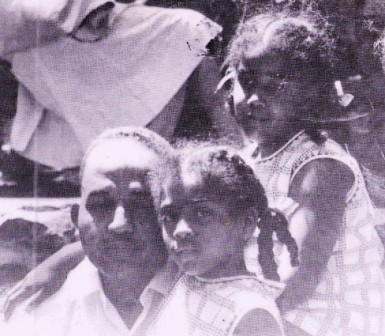
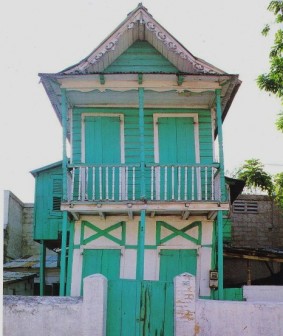
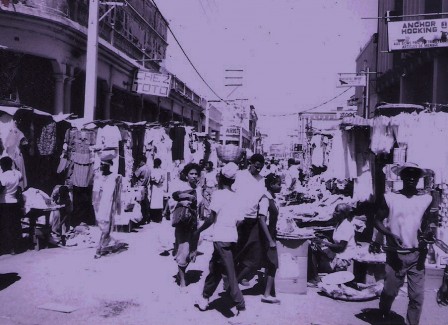

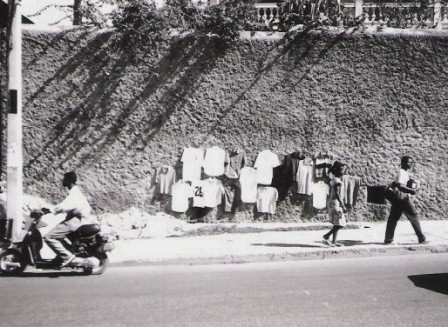
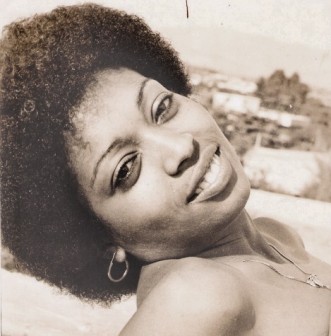
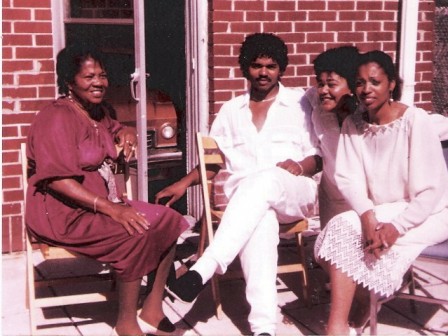
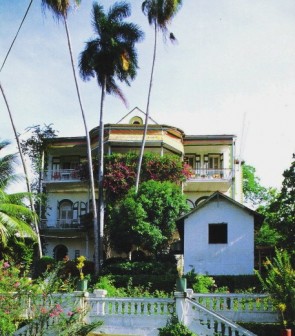
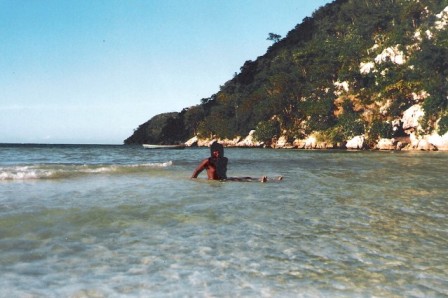
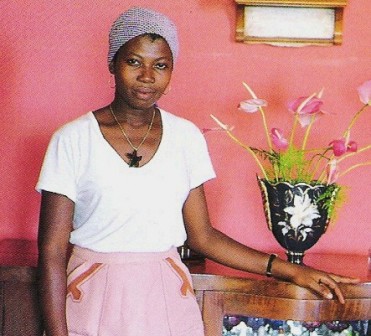
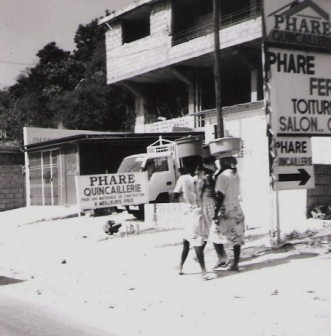
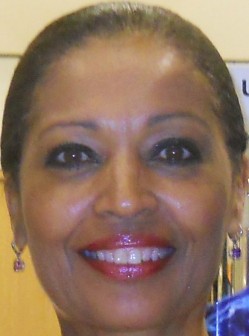











You must be logged in to post a comment Login